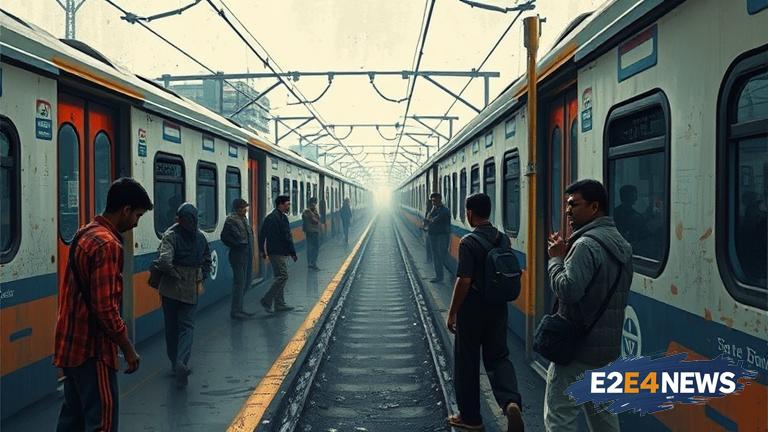The 2006 Mumbai train blasts were a series of coordinated terrorist attacks that occurred on July 11, 2006, in Mumbai, India. The blasts killed 209 people and injured over 700. The investigation and trial that followed were widely criticized for their handling, with many alleging that the police had coerced confessions and fabricated evidence. The case took a new turn when a jail cell conversation between two inmates, one of whom was a key accused in the blasts, was recorded and submitted as evidence. The conversation revealed that the accused had been coerced into confessing to the crime. This new evidence has sparked a fresh debate about the case and the need for justice and reform in India’s criminal justice system. The fight to free those wrongfully jailed has gained momentum, with many advocating for the release of the accused who have been languishing in jail for over a decade. The case has also highlighted the need for police reform and the importance of ensuring that the rights of the accused are protected. The Indian government has been criticized for its handling of the case, with many alleging that it has failed to provide justice to the victims and their families. The case has also sparked a wider debate about the use of torture and coercion in police investigations. Many have called for an independent inquiry into the case, to ensure that justice is served and that those responsible for the blasts are brought to book. The case has also highlighted the need for greater transparency and accountability in India’s criminal justice system. The fight for justice and freedom in the Mumbai train blasts case is ongoing, with many advocating for the release of the accused and an end to the culture of impunity that has characterized the case. The case has also sparked a wider debate about the role of the police and the judiciary in ensuring justice and upholding human rights. The Indian government has been urged to take steps to address the concerns raised by the case, including the need for police reform and the importance of protecting the rights of the accused. The case has also highlighted the need for greater international cooperation in the fight against terrorism, and the importance of ensuring that those responsible for such crimes are brought to justice. The Mumbai train blasts case is a reminder of the importance of justice and the need for reform in India’s criminal justice system. The case has sparked a wider debate about the use of coercion and torture in police investigations, and the need for greater transparency and accountability in the justice system. The fight for justice and freedom in the case is ongoing, with many advocating for the release of the accused and an end to the culture of impunity that has characterized the case. The case has also highlighted the need for greater awareness and understanding of the issues surrounding terrorism and the importance of addressing the root causes of such crimes. The Indian government has been urged to take steps to address the concerns raised by the case, including the need for police reform and the importance of protecting the rights of the accused. The case has also sparked a wider debate about the role of the media in reporting on terrorism and the importance of ensuring that such reporting is accurate and responsible. The Mumbai train blasts case is a complex and multifaceted issue, with many different perspectives and opinions on the case. The fight for justice and freedom in the case is ongoing, with many advocating for the release of the accused and an end to the culture of impunity that has characterized the case. The case has also highlighted the need for greater international cooperation in the fight against terrorism, and the importance of ensuring that those responsible for such crimes are brought to justice. The Indian government has been urged to take steps to address the concerns raised by the case, including the need for police reform and the importance of protecting the rights of the accused. The case has also sparked a wider debate about the use of technology in police investigations, and the need for greater transparency and accountability in the justice system. The Mumbai train blasts case is a reminder of the importance of justice and the need for reform in India’s criminal justice system. The case has sparked a wider debate about the role of the police and the judiciary in ensuring justice and upholding human rights. The fight for justice and freedom in the case is ongoing, with many advocating for the release of the accused and an end to the culture of impunity that has characterized the case. The case has also highlighted the need for greater awareness and understanding of the issues surrounding terrorism and the importance of addressing the root causes of such crimes. The Indian government has been urged to take steps to address the concerns raised by the case, including the need for police reform and the importance of protecting the rights of the accused. The case has also sparked a wider debate about the importance of ensuring that the rights of the accused are protected, and the need for greater transparency and accountability in the justice system. The Mumbai train blasts case is a complex and multifaceted issue, with many different perspectives and opinions on the case. The fight for justice and freedom in the case is ongoing, with many advocating for the release of the accused and an end to the culture of impunity that has characterized the case.
